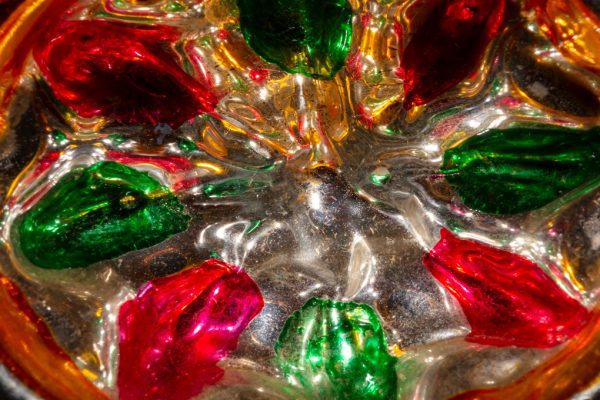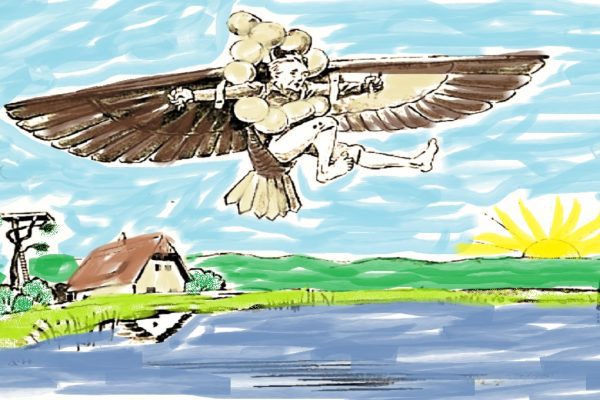The sound of beat music broke out in Prague sometime around late 1965, 1966 and 1967. During this time there was a cultural explosion unparalleled in Eastern Europe. There was a favorable political environment, after Soviet demilitarization and the release of political prisoners, culminating in the appointment of Dubček as secretary general of the Czech Communist Party.
To roughly paraphrase Marx, we might consider that “A ghost was touring Europe – the ghost of pop.”
(The Manifesto of the Communist Party by Karl Marx begins: “A spectre is Haunting Europe – the spectre of Communism.”)
In fact, this fearsome pop spectrum (be it called beat, rock, or pysch) didn’t only haunt the capitalist countries – we can now see that it also made quite an appearance on the other side of the Iron Curtain.
The Czech band Olympic was clear proof that the Iron Curtain (a pejorative expression referring to the fertile block that constituted the satellite countries of the USSR) was not well woven since some of its interlacing was impregnated with some sonic and viscous substance – substance which in the West had already caused serious damage (the communists believed), and now threatened to corrupt, pervert and ruin the youthful minds from Pilsen to Vladivostok. Western influence was leaking in on all sides.
Few know that American beat poet Allen Ginsberg visited Prague.
Ginsberg was even chosen Kral Maje (King of May) of all Prague universities as an estimated 100,000 students looked on. His popularity, one suspects, was the prime reason for his harassment by Czechoslovakian police and his subsequent expulsion from the country.
During this time, jazz and beat music was allowed with folkloric demonstrations throughout the country and soon bands like Olympic and Matadors dominated the Czech scene; In short, there was an interesting intersection between East and West.
But this “socialism with a human face” was soon thwarted by the Soviet intervention of 1968, with the Warsaw Pact tanks entering Prague.
It would be unfair to put an end to the emerging Czech cultural scene because, although the political repression was quite cruel, many artists nevertheless managed to implement with some continuity their risky proposals during the end of the 60s and 70s. The rock groups were no exception, several of the beat / psych ensembles of this era adapted their sound to the progressive golem that dominated the old continent.
Olympic is probably the most legendary group of all that beat batch, surviving the most adverse circumstances, at the dawn of all revolutions and counterrevolutions. Here we see them performing at the first Beat Festival in Prague in 1967, where they tell of one of their best songs Psychiatrický Prášek (Psychiatric Powder), quite reminiscent of the style of the band the Yardbirds.
(Note: The last minute of the video seems to be somewhat desynchronized with respect to the sound matching the image, but the clip is a gem of the time.)
I think it’s pretty amazing, presenting yourself like this under the communist regime of the sixties. This group is called The Matadors and the song is sung in English, I Think It’s Gonna Work Out Fine.
The Matadors were a beat band from Czechoslovakia. The members were Otto Bezloja (bass guitar, leader), Radim Hladík (lead guitar), Jan “Farmer” Obermayer (organ), Miroslav “Tony Black” Schwarz (drums) as well as Karel Kahovec (vocals, rhythm guitar) and Vladimír Mišík (vocals, bluesharp). The latter two were replaced in late 1966 by ex-Flamengo Viktor Sodoma jr. (vocals).
By the way, Radim Hladík (December 13, 1946 − December 4, 2016) was a Czech guitarist, composer and producer, who has been considered one of the best and most influential Czech guitarists.
The Arrangement of the First Czechoslovakian Beat Festival was the result and culmination of many efforts to make their rock scene official – to cover and show the best of it. There was quite a bit of rock and roll present as well.
The festival secretary, Miloslav Langer, stated at the Beat Festival Express (1967) that “there was a legitimate need for a similar business as a means of putting our beat music on a wider platform and putting it in a legitimate place in cultural life. We want to show that it is not just a ‘perpetual affair’, as many people mistakenly believe.”
It succeeded, most likely because of the great efforts of music theorist and publicist Jiří Chlíbec. He was a well-respected personality, also active in international music organizations (IFMC), and he was the founder of numerous domestic festivals concerning quite different kinds of music (ČAJF Přerov, Mladá píseň Jihlava, Porta), co-founded the Czech jazz clubs, etc.
He went about it quite cleverly. Because the Bolsheviks loved the office and all the matters he was managing, Chlébec set up a “beat office”, a so-called Pop Federation. This was an organization duly registered and registered in the appropriate places, even with its own stamp.
It’s unbelievable now in retrospect that it was taken as official and was even approved!
Chlíbec then joined the youth organization OV ČSM Praha 5 and dramaturgists from Music f Club. It’s thanks to him that he eventually established the festival organization.
Next is Prague band Flamengo with Karel Kahovec on vocals. It was recorded live in the early part of 1968. The song is Say It Loud /I’m Black and I’m Proud.
He has almost no accent, and it’s reminiscent of he roots of funk and soul.
Next we are listening to Blue Effect.
Blue Effect was a Czech progressive rock band, also operating under the names M. Efekt, Modrý efekt or The Special Blue Effect, since their formation in 1968. The line up included Radim Hladík, formerly of The Matadors. They changed their style numerous times, from rhythm and blues, to jazz fusion to art rock.
The following program was televised. It was called Kdopak by se beatu bál (Who would be afraid of beat) and featured Michal Prokop & Framus Five, Vladimír Mišík & Blue Effect, Petr Novák and George & Beatovens.
It was filmed at the New Club, Praha in Vršovice, in 1969.
This next clip features Marta Kubišová (born November 1, 1942 in České Budějovice). In 1967 she won Zlatý slavík (Golden Nightingale) award. Before 1968, she was one of the most popular female singers in Czechoslovakia.
By the time of the Prague Spring of 1968, with her song Modlitba pro Martu (A prayer for Marta), which became a symbol of national resistance against the occupation of Warsaw Pact troops in 1968, she recorded over 200 SP records and one LP, Songy a Balady (Songs and Ballads, released in 1969), which were then immediately banned from stores. In 1970, the government falsely accused her of making pornographic photographs leading to a ban from performing in the country until 1989.
This one features Marta Kubišová in 1967 singing Nechte zvony znít (Let the Bells Sound).
The next clip is Karel Kahovec performing the song Poprava blond holky (Execution of the blond girl).
He was an important member of the Matadors and Flamengos.
He continues to make music today.
In the following film, My zijeme v praze (We Live in Prague) by Egon Bondy, you can see a very rare and unusual view of Prague during the time.
Egon Bondy, born Zbyněk Fišer, (January 20, 1930 – April 9, 2007) was a Czech philosopher, writer, and poet, one of the leading personalities of the Prague underground. In the late 1940s, Bondy was active in a surrealistic group. From 1957 to 1961, he studied philosophy and psychology at Charles University in Prague. From the 1960s he was one of the main figures of the Prague underground, writing texts for The Plastic People of the Universe.
His non-conformism brought him into conflict with the totalitarian communist regime in Czechoslovakia. His works were circulated only as samizdat. Bondy was always interested in the study of Karl Marx and in the criticism of both contemporary capitalism and totalitarian socialism. His philosophical work concerns ontological and related ethical problems. He attempts to show the relevance of ontology without any substance or grounding.
Bondy’s work is very distinctive. He was a close friend of Bohumil Hrabal, another Prague writer, and is one of the most influential Czech intellectuals of the 20th century.
This rare film by Tomas Mazal and Pablo de Sax capture the legendary Egon Bondy, the “underground superstar” during rare and intimate moments in Malá Strana, the Jewish cemetary, Petřina, old restaurants and pubs, and even in his flat on Neruda Street where he appears dressed in a robe sewn from two blankets. It’s a beautiful record of these places, many changed or gone completely such as the old neighborhoods of Holesovice, old Podolí, old Bráník, old Libeň, and so on.
A very rare gem for all of the footage is shows.
Of course things changed after August 1968.
And we were left with films like this, entitled the Atentát na kulturu (Assassination of Culture), a documentary put out by Czechoslovak television in 1977.
We’re fascinated each day with the amounts of information which is becoming available each day due to the miracle of technology. Files, photos and films thought to be long lost have been preserved and are now being shared thanks to the internet. We can rediscover parts of our collective history and gain a greater perspective of the Czechoslovakia left behind.
There is a complete Beat Generation playlist which you can access here and another playlist which you can access here.
If you have not already subscribed to get TresBohemes.com delivered to your inbox, please use the form below now so you never miss another post.
Remember, we rely solely on your donations to keep the project going.
Become a friend and get our lovely Czech postcard pack.



















